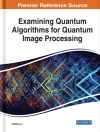This book presents the latest developments and breakthroughs in fuzzy theory and performance prediction of queuing and reliability models by using the stochastic modeling and optimization theory. The main focus is on analytics that use fuzzy logic, queuing and reliability theory for the performance prediction and optimal design of real-time engineering systems including call centers, telecommunication, manufacturing, service organizations, etc. For the day-to-day as well as industrial queuing situations and reliability prediction of machining parts embedded in computer, communication and manufacturing systems, the book assesses various measures of performance and effectiveness that can provide valuable insights and help arrive at the best decisions with regard to service and engineering systems.
In twenty chapters, the book presents both theoretical developments and applications of the fuzzy logic, reliability and queuing models in a diverse range of scenarios. The topics discussed will be of interest to researchers, educators and undergraduate students in the fields of Engineering, Business Management, and the Mathematical Sciences.
Inhoudsopgave
Chapter 1: Mehar methods to solve intuitionistic fuzzy linear programming problems with trapezoidal intuitionistic fuzzy numbers.- Chapter 2: Solving lp models for multi-objective matrix games with i-fuzzy goals.- Chapter 3: Fuzzy integrated super-efficiency slack based measure model.- Chapter 4: Prioritizing of factors affecting the adoption of mobile financial services in emerging markets- a fuzzy ahp approach.- Chapter 5: Design of reliability single sampling plan by attributes based on exponentiated exponential distribution.- Chapter 6: Availability prediction of repairable fault tolerant system with imperfect coverage, reboot and common cause failure.- Chapter 7: Software reliability growth model in distributed environment subject to debugging time lag.- Chapter 8: Imperfect software reliability growth model using delay in fault correction.- Chapter 9: Busy period analysis of gi/g/c and map/g/c queues.- Chapter 10: F-policy for m/m/1/k retrial queueing model with state dependent rates.- Chapter 11: A time shared queue with additional server and nopassing customers.- Chapter 12: The effect of vacation interruptions policy on the queueing system with cost optimization.- Chapter 13: Balking strategies for a working vacation priority queuing system with two classes of customers.- Chapter 14: Mx /g/1 queue with optional service and server breakdowns.- Chapter 15: Performance analysis of series queue with customers blocking.- Chapter 16: Markovian multiserver queue with reneging and provision of additional removable servers.- Chapter 17: Analysis of queues with impatient clients: an application to online shopping.- Chapter 18: Designing bulk arrival queue model to an interdependent communication system with fuzzy parameters.- Chapter 19: Transient analysis of markov feedback queue with working vacation and discouragement.- Chapter 20: Transient and steady-state behavior of a two-heterogeneous servers queuing system with balking and retention of reneging customers.
Over de auteur
Dr. Kusum Deep is a Professor at the Department of Mathematics, Indian Institute of Technology Roorkee. Her research interests include numerical optimization, nature inspired optimization, computational intelligence, genetic algorithms, parallel genetic algorithms, and parallel particle swarm optimization.
Dr. Madhu Jain is an Associate Professor at the Department of Mathematics, Indian Institute of Technology Roorkee. Her research interests include computer communications networks, performance prediction of wireless systems, mathematical modeling, and biomathematics.
Dr. Said Salhi is Director of the Centre for Logistics & Heuristic Optimization (CLHO) at Kent Business School, University of Kent, UK. Prior to his appointment at Kent in 2005, Said served at the University of Birmingham’s School of Mathematics for 15 years, where in the latter years he acted as Head of the Management Mathematics Group. He obtained his BSc in Mathematics at Algiers’s University, and his MSc and Ph D in OR at Southampton (Institute of Mathematics) and Lancaster (School of Management), respectively. Dr. Said has edited 6 special journal issues, chaired the European Working Group in Location Analysis in 1996 and recently the International Symposium on Combinatorial Optimisation (CO2016) in Kent, 1–3 September 2016. He has published over 100 papers in academic journals.












